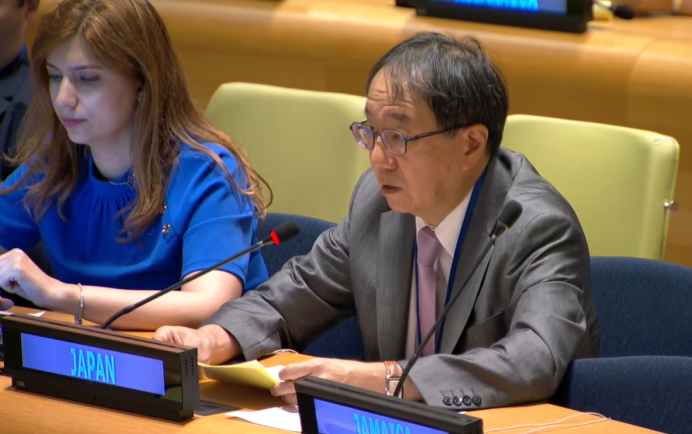Statement by H.E. Ambassador YAMAZAKI Kazuyuki, Permanent Representative of Japan to the United Nations, at the Informal Meeting of the General Assembly on the Intergovernmental Negotiations on Security Council Reform
2025/6/23

(As delivered)
Thank you, Mr. Chair.
Japan aligns with Germany’s statement on behalf of the G4. I will make additional remarks in my national capacity.
At the outset, I thank you for circulating the draft Revised Co-Chairs’ Elements Paper for this year’s IGN session and giving us an opportunity to provide our comments. The following comments are still preliminary, as we need to further analyze this substantive paper.
Mr. Chair,
Following last year's discussions on the five models submitted, Japan welcomes this year's discussions on the revised Liechtenstein model and CARICOM model, as well as the discussions on the five clusters. It is disappointing, however, that there has been no significant change in the convergences compared to last year's version.
Discussions of models help clarify each group's views on the five clusters and facilitate bridging the gaps among groups. Japan looks forward to submissions from the remaining groups at the earliest timing towards developing a consolidated model.
Mr. Chair,
While General Assembly resolution 62/557, the foundation of the current IGN, calls for “seeking a solution that can garner the widest possible political acceptance by Member States”, it must be highlighted that the text does not stipulate that a solution must be decided by consensus.
As stated in the G4 statement presented by Germany, the majority of Member States and groups including the African Group, the Arab Group, CARICOM, the G4, the L.69 Group, the Nordic Group, the Benelux countries, and four permanent members of the Council have expressed support for expanding both permanent and non-permanent categories. Japan would like to emphasize that this must be accurately reflected when a consolidated model is developed.
Mr. Chair,
In light of the reality that trust in the United Nations, the center of multilateralism, has been undermined and the international order formed under the UN has been shaken, reform of the Security Council, which bears primary responsibility for maintaining international peace and security, is a matter of fundamental necessity for the entire international order, not just for the Security Council.
The upcoming session marks an important milestone: the 80th anniversary of the founding of the UN. We must not miss this opportunity to transform the Security Council, which is a snapshot of the international environment in 1945, indeed eight decades ago, into an organization that reflects the contemporary international environment and can act more effectively.
I thank you.
